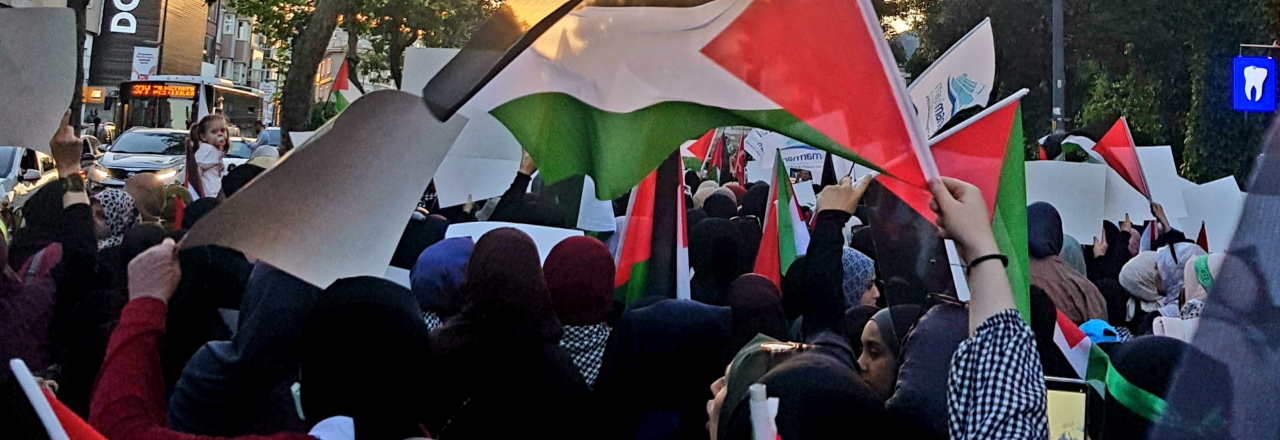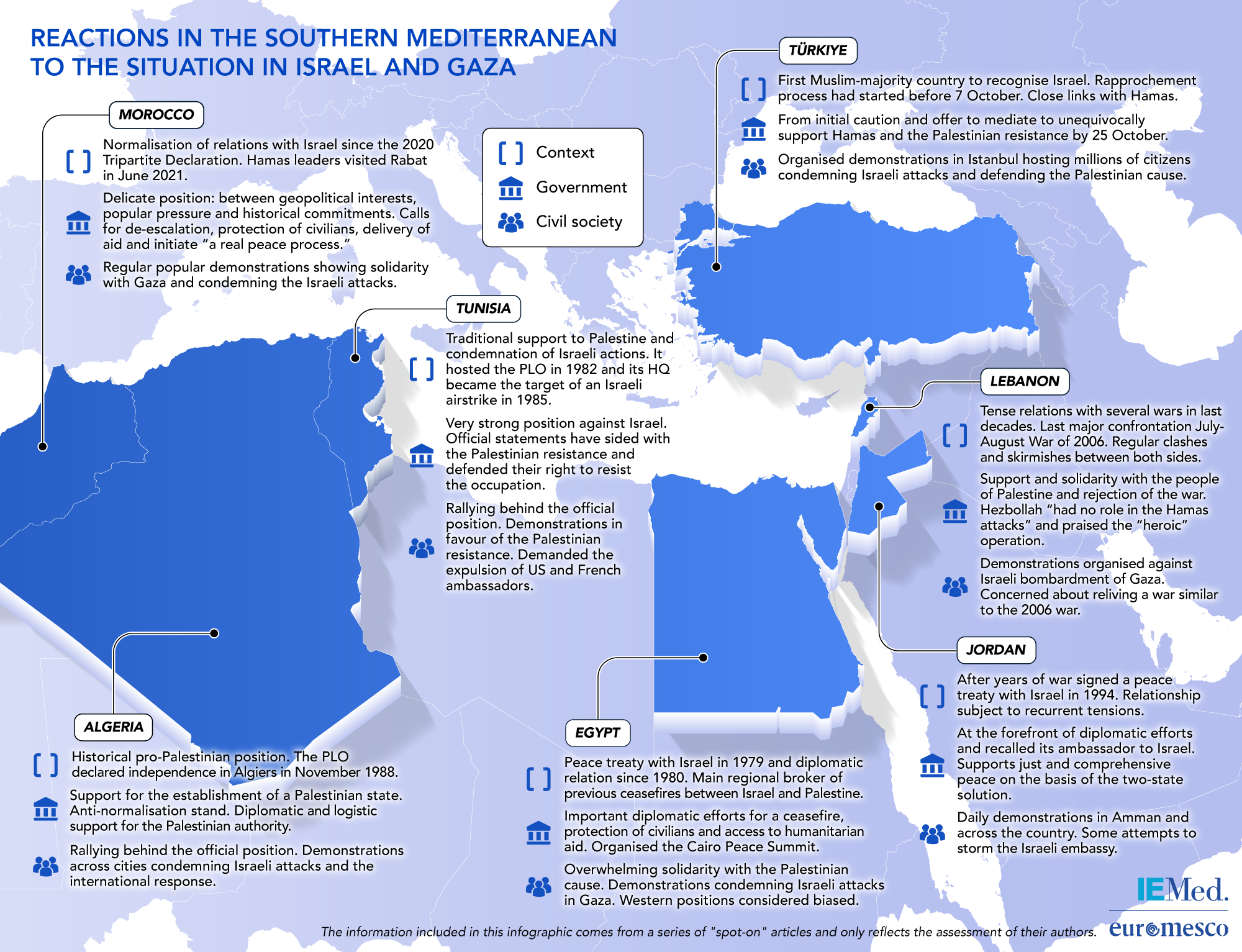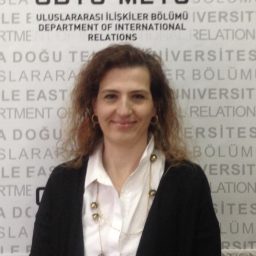
Abstract
This article looks at the change in Türkiye’s policy towards the war in Gaza which moved from a cautious, conciliatory stance to an outright support for Hamas and a harsh criticism of Israel. It will argue that this change can be explained by both the regional dynamics and the failure of Türkiye to position itself as a mediator and establish a guarantee system, as well as the domestic reaction that the bombing of Gaza created in the Turkish society at large. Türkiye’s stance will have long-term consequences for the country’s international relations and regional policy.
In May 2004 Turkish Prime Minister Recep Tayyip Erdoğan, pointing to an Israeli operation in Gaza, where dozens of civilians were killed, described the operations as having escalated to the point of state terror, saying “I invite all those in a position of responsibility—prime ministers, heads of state— to take a joint stance against these steps which have escalated almost to the level of state terror.” He went on to ask, “What is the difference between a terrorist who kills civilians and Israel, which kills civilians?” (Hürriyet, 2004; Tür, 2012). Similar words have been used by Erdoğan regarding the recent developments in Gaza and, despite periods of reproachment with Israel, there has been continuity in Türkiye’s stance, with Gaza at the centre of its foreign policy since 2004. A series of developments illustrate this point. For example, after Israel’s Operation Cast Led, Erdoğan burst out in anger at Israeli President Peres at the Davos Meeting in 2009 telling him, “When it comes to killing, you know well how to kill” (Bennhold, 2009). In 2010, the Mavi Marmara incident, the sailing of ships from Istanbul as a part of the Free Gaza Movement, put Turkish-Israeli relations at a low. Türkiye’s relations with Hamas in the meanwhile significantly increased and top Hamas figures were known to be frequent visitors of Türkiye, having good ties with the Turkish regime. After years of tension, relations between Türkiye and Israel began to thaw in the last few years. This was understood as a part of the change in Türkiye’s regional policy at large. Erdoğan and Netanyahu met in Washington briefly in September 2023 and official visits were planned for the coming months as the events on 7 October broke out.
After the Hamas attacks on Israel on 7 October, Türkiye’s initial position was caution and an immediate call to both parties for restraint. This position has changed to outright support for Hamas and condemnation of Israel by 25 October. What facilitated this change can be explained by Türkiye’s quest to play an active regional role and the need to address the growing domestic pressure amidst the situation in Gaza – under intense bombing with high human suffering.

The news of the Hamas attack on Israel reached Ankara during the ruling Justice and Development Party (AKP)’s Extraordinary Congress. Addressing the Congress, Erdoğan called for caution and restraint and urged both parties “to stay away from impulsive steps that will escalate tensions” (Güldoğan, 2023). In the following days, Erdoğan said Türkiye could play a mediation role between Israel and Hamas including the release of hostages, and many contacts with regional actors were made to “discuss how to stop the bloodshed” (Yetkin Report, 9 October). Having close links with Hamas and the Muslim Brotherhood network in the region and having rebuilt relations with Israel in the past months, Türkiye thought it could play such a mediator/facilitator role in the emerging war and lead the reconciliation process between the parties. While the streets all over Türkiye witnessed rallies condemning Israel and the Israeli bombing of Gaza, the approach of Erdoğan and the Turkish leadership remained rather balanced and conciliatory.
The game-changer in this stance was the bombing of the al-Ahli Arabi Hospital on 17 October, which put an end to the initial cautious and rather balanced approach. Speaking the day after the bombing, Erdoğan increased the tone of his criticism towards Israel, saying that this event has pushed “the massacre in Gaza” to another level. The Turkish Parliament issued a declaration signed by all political party representatives, “condemning the attack as a crime against humanity” and three days of national mourning were announced the next day “in solidarity with the suffering Palestinian nation” (Hürriyet Daily News, 19 October 2023). Erdoğan proposed “organising an international Palestine-Israel peace conference in which all influential actors in the region take part” (Bayar, 25 October 2023) as well as underlining a more active role for Türkiye stating it was “ready to be one of the guarantors of the Palestinian side with a humanitarian, political, and military presence”. Turkey sent humanitarian aid to Gaza via Egypt in this context.
On 20 October, Turkish Foreign Minister Fidan gave a long talk about to the situation in Gaza on state television, TRT. Unlike the international community caught by surprise by the developments in Israel, Fidan noted that Türkiye was expecting such an outburst of the Palestinians eventually as Israel had been disregarding the two-state solution, basing its diplomatic endeavor to strengthen ties in the region through the Abraham Accords yet forgetting the main party in the conflict, the Palestinians (TRT Haber, 20 October 2023). Condemning the Israeli bombardment of Gaza, Fidan said the situation in Gaza must be named as an international crisis and a crime against humanity and called for collective international action against Israel to stop the violence. He proposed a new guarantee mechanism for Palestine and said that Türkiye was ready to lead in this effort.
The following day, on 21 October Fidan attended the Cairo Summit on Gaza and took a similar position. He said that “there can be no excuse or reason for inflicting such cruel suffering on human lives like the one happening in Gaza” and strongly criticised the international community that was unable to “produce solutions to core problems”. Fidan also proposed the creation of “a guarantee mechanism for monitoring, verifying and, when needed, forcing obligations of parties in a just peace” which Türkiye could lead (Youtube, 21 October 2023). As a decision for ceasefire could not be endorsed and Türkiye could not play a leading role in mediating the conflict or endorsing a guarantee mechanism, Erdoğan began directing his criticism at the international community, its organisations, especially the United Nations Security Council, and the Western-based international system. A strong criticism towards the United Nations (UN) and call for UN reform had already been widely repeated by Erdoğan over the past decade, with the statement “the world is greater than five”. This was once again strongly underlined at this time. Erdoğan said: “The UN Security Council, which has become completely ineffective, has once again failed to fulfill its responsibility”. Criticism of the Western-led international order, which was considered “devoid of justice”, and the inaction in this order against Israel is presented as a major problem. Underlining that there was an ongoing humanitarian crisis in Gaza with a lack of water, food, fuel which were all “against the International Covenant on Human Rights”, Erdoğan asked, “where is the West?”(TRT World, 18 October 2023).
Türkiye also began criticising the role of outside powers in the growing conflict. Erdoğan had traditionally prioritised the role of regional countries in dealing with the region’s problems. The open support that the United States (US) gave to Israel came under harsh criticism from the Turkish President. After Biden’s visit to Israel demonstrating the US’s solidarity and commitment to defend Israel, also by sending aircraft carriers, Erdoğan said: “They are saying they will be sending aircraft carriers to the region. Where is the US, where is the Mediterranean, Israel, Palestine (geographically)? What are you doing here?” (Anka Haber, 12.10.2023). Erdoğan’s statements brought a new crisis to the already tense Türkiye-US relations. It is interesting to note at this point that, a week after these statements, President Erdoğan signed the documents for the admission of Sweden into NATO and referred them to the Turkish Parliament to be approved. While the relations with the US kept deteriorating, after a long wait, Türkiye proceeded with Sweden’s admission into NATO, an issue that was a point of disagreement in Turkish-US relations. This move is timely and can be considered as a sign of Türkiye’s willingness to contain the deterioration of the relations with the US in the NATO context.
The initial cautious and balanced approach began to tilt towards harsher criticism of Israel as the bombing of Gaza intensified. Türkiye’s diplomatic efforts to bring about a condemnation of these attacks and improve the humanitarian situation in Gaza did not bring any results and Türkiye’s quest to play an active diplomatic role failed. After Qatar got more involved as the major mediator in the conflict, rather than Türkiye, Türkiye’s position changed radically. On 21 October, ruling coalition partner MHP’s leader Bahçeli gave Israel 24 hours for a ceasefire. He said, “Otherwise Türkiye should act. The mission to protect Gaza is our duty bestowed upon us from our ancestors” (Dünya, 21.10.2023). A couple of days later, on 25 October, Erdoğan in his party meeting accused Israel of deliberately killing civilians, children, women, and older people and once again repeated that these actions were a crime against humanity. Erdoğan went further to argue that Hamas was not a terror organisation but rather “an organisation of liberation, of mujahedeen, who fights to protect their land and citizens.” Erdoğan also put Netanyahu at the centre of his statements, personalizing his stance, by saying: “I have shaken hands once in my life with this guy, Netanyahu. Of course, we had goodwill, they abused it. We had a project to go to Israel, we canceled it. … They abused our goodwill” (Gümrükçü and Hayatsever, 25.10.2023). Erdoğan’s statements on Hamas were met with negative reaction from many Western countries and have put relations with Israel at a low. They also seem to have deeply marred relations with the US. The statement, which is a bold move, can be interpreted in a couple of ways. First, it was part of a speech directed at the members of the party, who are already very critical of Israel and expect Türkiye to do more for the Gazans. Second, over the past decades, the Turkish ruling party, AKP, and Erdoğan have had an ongoing close relationship with Hamas. This statement can be seen only as an open admission of Erdoğan’s stance on Hamas and further legitimisation of Türkiye’s relations with Hamas. Third, left with limited options to change the reality on the ground in Gaza by staying cautious and balanced, Erdoğan adopted a harsh rhetoric. As diplomatic efforts to play a mediator role and build a new guarantor mechanism have proved ineffective and efforts to bring about a ceasefire have failed, Erdoğan took sides to defend Hamas to win the hearts and minds of the Arab and Muslim streets and thus play a major role in the future of the region when the dust settles. Türkiye’s position, while explicitly siding with Hamas, recently shifted towards singling out Israel’s responsibility in the tragedy in Gaza and began to search for ways to penalize Israel in the international community by declaring it a “war criminal”.
On 28 October, a day before the celebration of the centenary of the Turkish Republic, a large pro-Palestinian rally was organised in Istanbul, where hundreds of thousands attended (Erdoğan stated that the number was 1.5 million). Erdoğan addressed the masses with the following sentences: “What was Gaza and Palestine in 1947, what is it today? Israel, how did you get here? How did you get in? You are an invader […]. Israel, we will declare you to the world as a war criminal. We are preparing to introduce Israel to the world as a war criminal” (Calli, 28.10.2023). In line with the points in the previous paragraphs, the speech reflects the current stance of the Turkish government on Gaza. This stance can be explained in line with the role Türkiye wants to play in regional and international politics as much as addressing the domestic pressure to end the suffering in Gaza. Considering various protests against Israel all over Türkiye, sit-ins and campaigns for stopping the Israeli bombardment of Gaza and calls for a boycott of Israeli goods, these messages are also directed at the domestic audience.
Türkiye has put its efforts into mobilizing the international society for an immediate ceasefire in Gaza and declaring Israel a war criminal. Its support for Hamas and declaration that it was not a terrorist organisation complicates Türkiye’s international stance. The already tense relations with the US have further deteriorated due to the US’s unconditional support for Israel, which Türkiye thinks is unacceptable. Blinken was met with a cold welcome during his visit to Ankara on 6 November, which is a good reflection of the current relations. Although the relations with the US within the NATO context continue despite setbacks, the war in Gaza will determine the future of the relations. For now, this future seems pretty grim and the longer the war continues, and a ceasefire is delayed, the deeper the rift will be in Türkiye’s relations with the US in particular and the Western world at large.
Bibliography
Anka Haber, “Erdoğan: Bay Amerika, Amerika Nere Akdeniz, srail Nere? Ne in Var Senin Orada?” (Erdo an: Mr. America, Where is America, where is Mediterranean, Israel? What are you doing over there?) 12.11.2023 https://ankahaber.net/haber/detay/erdogan_bay_amerika_ amerika_nere_akdeniz _israil_filistin_nere_ne_isin_var_senin_orada_156300
Bayar, Gözde. “Türkiye deeply saddened by UN helplessness over Gaza conflict, says President Erdogan” anatolian Agency, 25.10.2023. https://www.aa.com.tr/en/middle-east/turkiye-deeply-saddened-by-un-helplessness-over-gaza-conflict-says-president-erdogan/3032312
Bennhold, Katrin. “Leaders of Turkey and Israel Clash at Davos Panel”, The New York Times, 19.1.2009. https://www.nytimes.com/2009/01/30/world/europe/30iht-30clash.19795420.html
Calli, Muhammed Enes. “Türkiye to introduce Israel to world as war criminal: Turkish President Erdogan”, Anatolian Agency, 28.10.2023. https://www.aa.com.tr/en/middle-east/-turkiye-to-introduce-israel-to-world-as-war-criminal-turkish-president-erdogan/3036204
Dünya, “Bahçeli İsrail’e seslendi: 24 saat içinde silahlar susmazsa Türkiye devreye girmeli”, 21.10.2023. https://www.dunya.com/gundem/bahceli-israile-seslendi-24-saat-icinde-silahlar-susmazsa-turkiye-devreye-girmeli-haberi-708529
Gündoğan, Diyar. “Türkiye calls on Israelis, Palestinians to act with restraint”, Anatolian Agency, 7.10.2023. https://www.aa.com.tr/en/middle-east/turkiye-calls-on-israelis-palestinians-to-act-with-restraint/3010374
Hürriyet, “Erdoğan’dan İsrail ve ABD’ye Kınama” (Erdoğan Condemns Israel and the US) 20.5.2004. https://www.hurriyet.com.tr/gundem/erdogandan-israil-ve-abdye-kinama-38605481
Hürriyet Daily News “Türkiye declares 3-day mourning over Gaza hospital strike 19.10.2023. https://www.hurriyetdailynews.com/turkiye-declares-3-day-mourning-over-gaza-hospital-strike-187185
TRT Haber, “Dışişleri Bakanı Hakan Fidan, Filistin-İsrail gündemine dair sıcak gelişmeleri TRT Haber özel yayınında değerlendirdi”, (Foreign Minister Fidan Evaluates the Latest Developments in the Palestinian-Israeli issue for TRT News). 20.10.2023. https://www.trthaber.com/videolar/bakan-fidan-bidenin-gazzedeki-yikima-onay-verir-durumda-olmasi-tarih-tarafindan-not-ediliyor-69696.html
TRT World, “Erdogan criticises West, UN Security Council for failing Palestine”, 18.10.2023. https://www.trtworld.com/turkiye/erdogan-criticises-west-un-security-council-for-failing-palestine-15450191
Tuvan Gümrükçü and Hüseyin Hayatsever, “Turkey’s Erdogan says Hamas is not terrorist organisation, cancels trip to Israel”, Reuters, 25.10.2023. https://www.reuters.com/world/middle-east/turkeys-erdogan-says-hamas-is-not-terrorist-organisation-2023-10-25/
Tür, Özlem, “Turkey and Israel in the 2000s – From Cooperation to Conflict” Israel Studies, Vol.17, Number 3, 2012, pp. 45-66. Yetkin Report, “İsrail ve Filistin liderlerini arayan Erdoğan ara buluculuk önerdi” (Erdoğan Called Israeli and Palestinian Leaders and Offered Mediation), 9.10.2023. https://yetkinreport.com/2023/10/09/israil-ve-filistin-liderlerini-arayan-erdogan-ara-buluculuk-onerdi



